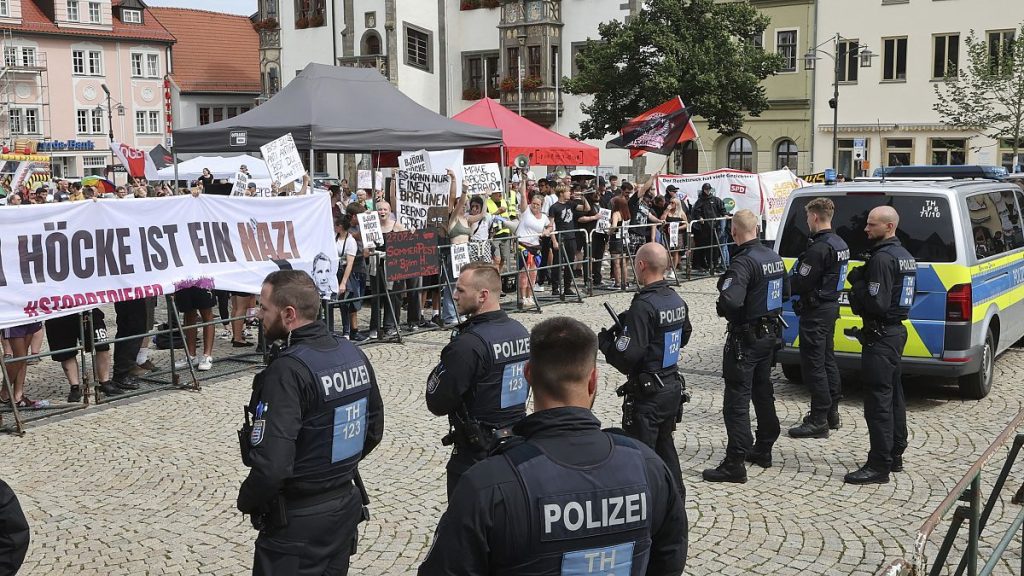Thuringia, a German state, is known for being a stronghold of the far-right Alternative for Germany (AfD) party. Recent polls suggest that the AfD could become the second strongest party in the state’s parliament. This surge in support for the far-right has led to concerns among many residents and activists, prompting more than 4,000 anti-far right protesters to gather in Erfurt, the capital of Thuringia. Jens-Christian Wagner, the director of the Buchenwald memorial located in the state, expressed frustration over the fact that despite efforts to educate people about history and politics, around thirty percent of Thuringians are willing to vote for the AfD.
The historical significance of Thuringia, particularly its connection to the Nazi regime during World War Two, adds another layer of complexity to the current political landscape. Buchenwald, a labor camp where around 56,000 prisoners, mostly Jews, died at the hands of the far-right Nazis, serves as a painful reminder of the dangers of extreme ideologies. The rise of the AfD in Thuringia has raised concerns about the potential impact on the state’s governance, particularly as the Christian Democratic Union of Germany (CDU), which currently rules Thuringia in a coalition with the SPD and the Greens, is trailing two percent behind the AfD in polls conducted by INSA.
The recent arrest of a failed Syrian asylum-seeker in connection with the deadly stabbing of three festival-goers in Solingen has further fueled tensions and could potentially boost support for the far-right in Thuringia. The incident has underscored the ongoing debate over immigration policies and security measures, with the AfD using such events to bolster its anti-immigrant platform. The upcoming state elections in Saxony and Brandenburg, scheduled for September, along with the election in Thuringia, are expected to have significant implications for national politics in Germany, despite the fact that these three states only make up ten percent of the country’s population.
The political landscape in Germany is undergoing a period of flux, with the rise of far-right parties like the AfD challenging the traditional dominance of mainstream political parties. The success of the AfD in states like Thuringia reflects broader societal divisions and frustrations that have been exacerbated by issues such as immigration, security, and economic inequalities. The response to the far-right’s growing influence has galvanized activists and protesters, as seen in the recent demonstration in Erfurt, where thousands gathered to voice their opposition to the AfD’s policies and rhetoric.
The legacy of World War Two and the horrors of the Nazi regime continue to loom large in the consciousness of many Germans, particularly those in states like Thuringia that have a historical connection to that dark period. The presence of memorials like Buchenwald serve as reminders of the atrocities committed by the far-right in the past and the importance of standing up against extremist ideologies. The ongoing struggle to combat the rise of the AfD and other far-right movements in Germany is a reminder of the challenges facing democratic societies in confronting intolerance and hate speech.
As Germany grapples with the repercussions of increasing support for far-right parties, the upcoming state elections in Saxony, Brandenburg, and Thuringia will be closely watched as indicators of the country’s political direction. The outcome of these elections will not only shape the governance of these states but will also have broader repercussions for national policies and the future of Germany’s political landscape. The mobilization of anti-far right activists and protesters, along with ongoing efforts to educate the public about the dangers of extremist ideologies, will play a crucial role in determining the trajectory of German politics in the coming months and years.


